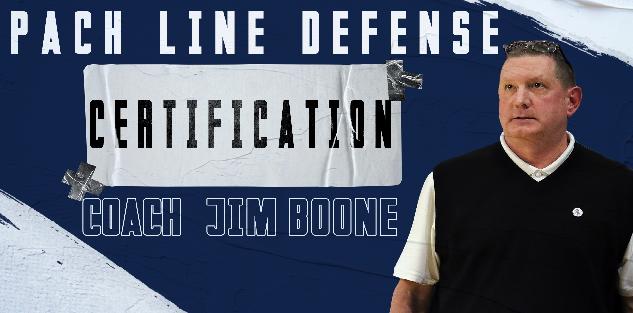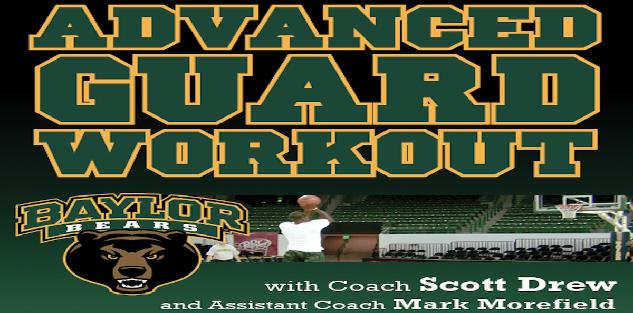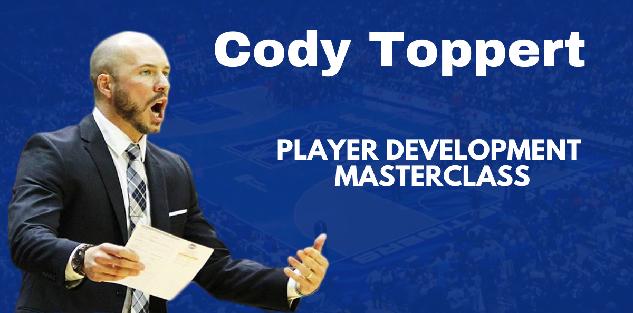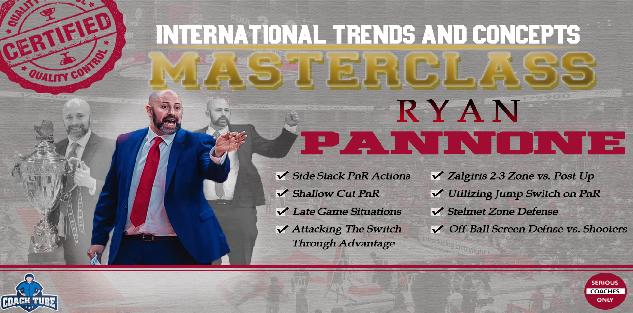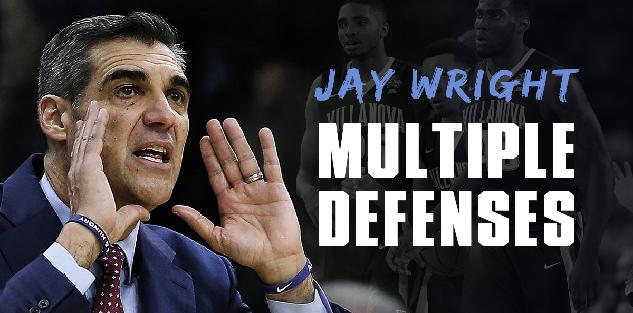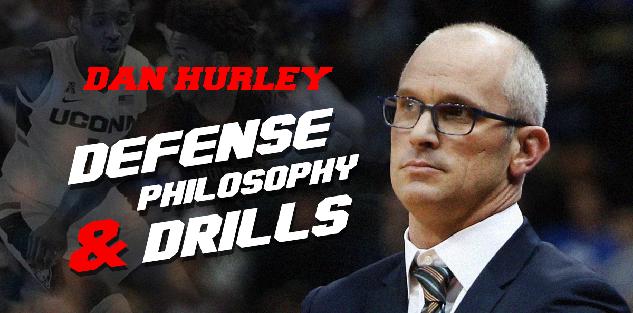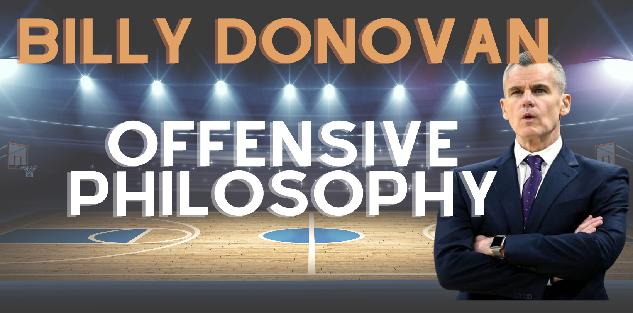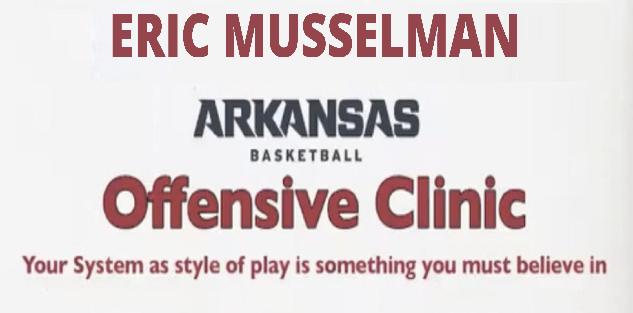Featured courses
- Two Great Game Situational Workouts For the Basketball Offseason by Grant Young
- Two Reads Basketball Players Must Understand Before Executing the Ball-Screen by Grant Young
- Two of LSU Coach Kim Mulkey’s Game-Winning Inbounds Plays by Grant Young
- Three Effective Early-Season Defensive Basketball Drills by Grant Young
- Four Essential Tips For Basketball’s 1-3-1 Zone Defense by Grant Young
- Four Zone Defense Drills to Strengthen Your Team by Grant Young
- How to Beat the Three Most Common Pick and Roll Coverages by Grant Young
- Two Drills to Improve Shooting at the Start of the Basketball Season by Grant Young
- Core Basketball Principles That Dallas Mavericks Coach Sean Sweeney Teaches by Grant Young
- Three Competitive Shooting Drills For Your Basketball Team by Grant Young
- How To Teach The ‘I’ Generation of Basketball Players by Grant Young
- Three Elite Drills to Begin a Basketball Practice With by Grant Young
- How to Build a Championship-Winning Basketball Team Culture by Grant Young
- Two of Texas Women’s Basketball Coach Vic Schaefer’s Tips For Team Culture by Grant Young
- Atlanta Dream WNBA Coach Brandi Poole’s Four Sets for Secondary Offense by Grant Young
- NC State Basketball Coach Brett Nelson’s 4 Crucial Point Guard Qualities by Grant Young
- Kentucky Coach Mark Pope’s Five Guard Rules For Offense by Grant Young
- McNeese State Basketball Coach Will Wade’s 4 Core Pillars by Grant Young
- 4 Tips To Instantly Improve Your Free Throw Shooting by Tyler Linderman
- Assemble a Championship-Caliber Basketball Rotation by Brandon Ogle
- Two of UConn Coach Dan Hurley’s Key Defensive Drills by Grant Young
- Four Post Moves All Basketball Forwards Should Have In Their Bag by Grant Young
- Four of Baylor Coach Nicki Collen’s Midseason Pick and Roll Adjustments by Grant Young
- WNBA Legend Sue Bird’s Two Tips For Attacking on Offense by Grant Young
- Houston Coach Kelvin Sampson’s Three Keys for Building a Basketball Program by Grant Young
- Two of Tom Izzo’s Top Michigan State Defensive Drills by Grant Young
- Four of Olympic Gold Medalist Coach Mechelle Freeman’s Relay Race Strategies by Grant Young
- Three Key Strategies Will Wade Uses to Build a Dominant Team by William Markey
- Five UConn Huskies Men’s Basketball Plays That You Can Use by Grant Young
- Three Tips for Maintaining Team Culture at the End of a Basketball Season by Grant Young
- Three Dribble Drive Motion Drills to Teach Your Basketball Team by Grant Young
- Three Dribbling Drills For Non-Primary Ball Handlers by Grant Young
- Four Advanced Ball Handling Drills For Basketball Guards by Grant Young
- Three Tips to Sharpen Your Post Player’s Footwork in Basketball by Grant Young
- These Three Pick and Roll Drills Are Crucial For Any Ball Screen Offense by Grant Young
- Three Closeout Drills to Improve Basketball Shooting Defense by Grant Young
- Three Tips to Perfect the Packline Defense in Basketball by Grant Young
- Four Keys to Executing the Read and React Offense in Basketball by Grant Young
- Three Tips to Develop Elite Basketball Shooters by Grant Young
- Three Crucial Keys to Executing the 5 Out Offense in Basketball by Grant Young
- These Three Offensive Sets Will Help You Beat Any Zone Defense by Grant Young
- Three Transition Basketball Drills To Play With More Pace by Grant Young
- Three 5 Out Offense Drills Any Basketball Coach Can Use by Grant Young
- Four Vital Techniques for a Motion Offense in Basketball by Grant Young
- Three Baseline Inbounds Plays To Win Your Basketball Team Games by Grant Young
- Four Drills For Sharpening the European Ball Screen Offense by Grant Young
- Three Positioning Tricks For a Basketball Zone Offense by Grant Young
- Three Rules to Perfecting Basketball's Lock Left Defensive System by Grant Young
- UCLA WBB Coach Cori Close’s Two Keys to Winning the Mental Game by Grant Young
- Four of Alabama Coach Nate Oats’ Favorite Basketball Drills by Grant Young
- Three Ways To Turn Transition Offense in Basketball Into Points by Grant Young
- Three Drills to Master Basketball's Pack Line Defense by Grant Young
- Three Transition Defense Drills to Halt Fast Breaks by Grant Young
- Four Offensive Rebounding Drills to Win Second Possessions by Grant Young
- 4 Defensive Technique Drills from Boston Celtics Assistant Coach Brandon Bailey by Marek Hulva
- 5 Drills to Improve Ball Handling by Tyler Linderman
- 13 FUNNY BASKETBALL GIFS by Alex
- BASKETBALL SPEED AND AGILITY: 8 QUESTIONS FOR COACHTUBE EXPERT RICH STONER by Jaycob Ammerman
- Defensive Strategies for Basketball by Ryan Brennan
- 4 Keys To Turning Your Program Into Championship Contender By Dallas Mavericks Coach Sean Sweeney by Marek Hulva
- 5 Components to Creating a Winning Basketball Program by Justin Tran
- Guide to Becoming a Lethal Scorer in Basketball by Justin Tran
- Zone Defense In the NBA Eastern Conference Finals by James Locke
- Mastering Court Mobility: Tips for Effective Movement in Basketball by Justin Tran
- 5 Basketball Shooting Drills: How to Develop a Sharpshooter by James Locke
- 6 Points of Emphasis for a Successful 5 Out Offense by Jaycob Ammerman
- Effective and Efficient Methods to Practice During the Basketball Season by Justin Tran
- Three Great Passing Drills From a Basketball Coaching Legend by Grant Young
- 7 Principles For Perfecting the Princeton Offense in Basketball by Grant Young
- How to Replicate A Modern NBA Offense by Grant Young
- Three Great Two-Ball Dribbling Drills For Basketball Development by Grant Young
- Two Rebounding Drills to Win Your Basketball Team Championships by Grant Young
- How to Improve Your Basketball Team’s Defense With the Shell Drill by Grant Young
- How Baylor Basketball’s Scott Drew Develops Elite Guard Play by Grant Young
- Off-Ball Movement Tips and Strategies: Lessons From the NBA Finals by James Locke
- Player Development: Scott Drew’s Tips for Producing NBA Guards by James Locke
- How to Execute a Spread Offense in Basketball by Grant Young
- Four Quality Quotes From Four Final Four Coaches by Grant Young
- A Guide to the Pack Line Defense by Alex Martinez
- 3 Defensive Build Up Drills to Improve Team Basketball Defense by Grant Young
- Battle of Two Great Coaches: Best Plays from the NBA Finals Contenders by Justin Tran
- 10 Creative Ways Athletic Programs Can Use a Video Board to Raise Money by Coach Williams
- How to Use 3 on 3 to Improve Your Basketball Team by Grant Young
- How to Defend the Pick and Roll by Grant Young
- Mastering Basketball Defense: Techniques, Drills, and Strategies for Success by Justin Tran
- Three Tips From The Coach Who Developed Giannis Antetokoumnpo by Grant Young
- 2023 NBA Draft: Skills and Technique from Top Prospects by Justin Tran
- From College to the Pros: Transitioning the Dribble Drive Offense by Justin Tran
- Positionless Basketball: Redefining Roles on the Court by Justin Tran
- Revolutionize Your Offense: Proven Concepts to Elevate Your Basketball Game by Justin Tran
- 5 Essential Fastbreak Drills Every Basketball Coach Should Know by James Locke
- How to Run a Circle Offense in Basketball by Grant Young
- Game-Changing Strategies: ATO Plays in the EuroLeague and Olympics by Justin Tran
- How to Stand Out at Basketball Tryouts by Grant Young
- How to Improve Your Basketball Team’s Transition Defense by Grant Young
- Indiana Fever GM Lin Dunn’s Two Keys For Women’s Basketball Coaches by Grant Young
- Strength Training Strategies Every Basketball Player Should Have by Grant Young
- A WNBA Basketball Coach’s Four Priorities In Transition Defense by Grant Young
- Three Adjustments to Make When Your Basketball Offense Isn’t Working by Grant Young
- Three Pillars to Applying Defensive Pressure on the Basketball Court by Grant Young
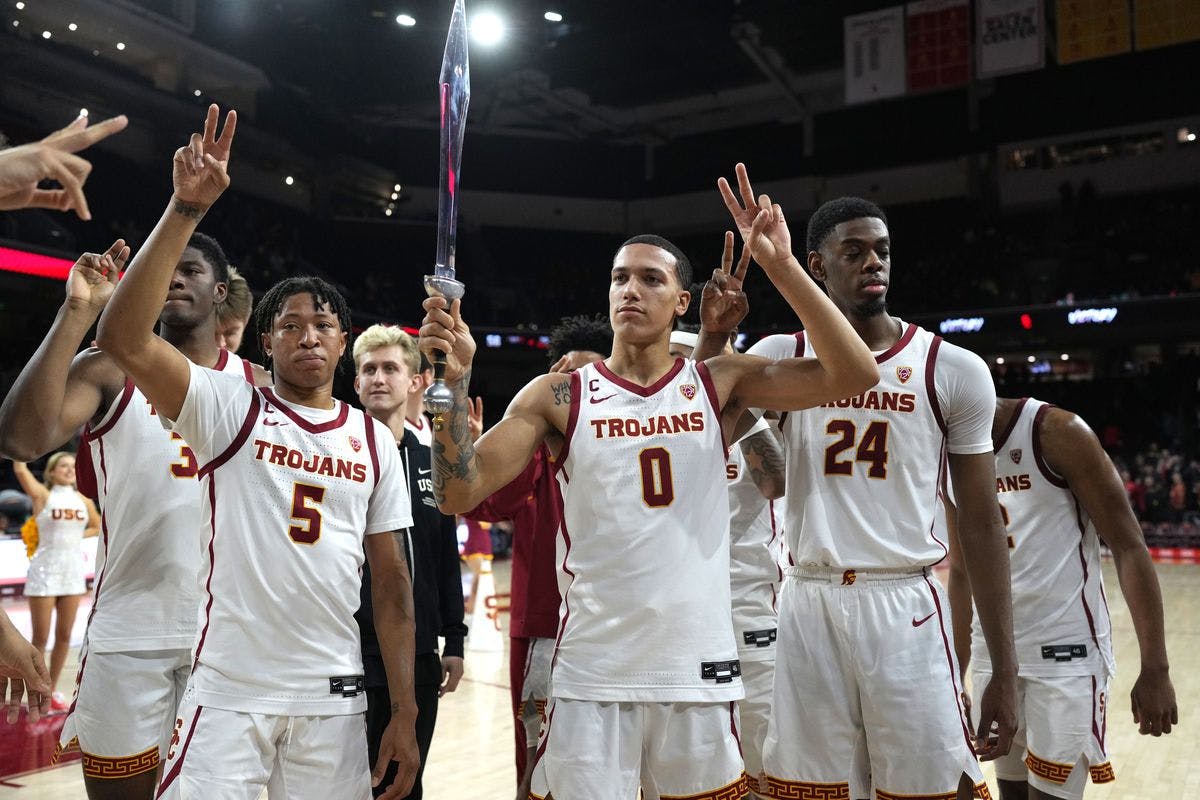
University of South California Basketball Coach Eric Musselman’s Offensive Philosophy
- By Grant Young
While having great basketball coaching resources is surely beneficial, there’s more to helping your team win than getting the X’s and O’s nailed down. Since basketball is a team game that relies on multiple players executing their roles and playing in cohesion with one another, coaches must learn how to help guide their team’s offense, rather than direct it.
Not to mention that, because basketball success is so much predicated on individual talent, sometimes a coach should let their best players improvise on the court, rather than constrain them with set offensive schemes.
All of these reasons indicate why having an offensive coaching philosophy should be a prerequisite for basketball coaches at every level. But if you don’t how to build your offensive philosophy, let Eric Musselman provide you with a blueprint.
On April 4, 2024, Eric Musselman was named head coach of the University of Southern California men’s basketball team. Before signing with USC, Coach Musselman was head men’s basketball coach at the University of Arkansas since 2019.
Musselman has more than 30 years of coaching experience. In his five years as a collegiate head coach, Musselman’s teams have won at least 20 games each year. Before entering the collegiate head coaching ranks, Musselman was a head coach for seven professional teams, including two seasons with the Golden State Warriors (2002-04) and one with the Sacramento Kings (2006-07). He has won over 500 games as a professional head coach with an overall winning percentage of .634 (508-293).
Coach Musselman prides himself on his offensive philosophy. And he was willing to share his insights in his ‘Offensive Clinic’ course from the Arkansas Basketball Coaches Association. We have taken some of his most prudent insights and compiled them below, for you to use when helping you create your offensive philosophy.
Adjusting to Personnel
Regardless of what level you coach at, you’re going to have to deal with your roster changing from year to year. This unavoidable fact makes it crucial for coaches to identify which players they can use to fill which specific roles as early as possible.
For example, Coach Musselman discusses how he didn’t know who his team’s closer would be at the beginning of one season. But he managed to solve that problem by moving one of his current players to a new position, which opened up offensive opportunities for him to succeed in the pick and roll.
Coach Musselman noted that the bottom line when it comes to adjusting personnel is that coaches must keep an open mind. They can’t have a single-track-minded, “my way or the highway” approach when it comes to putting their players in specific roles or positions, because there may be another strategy that will be more conducive to scoring points. This same reason is why coaches need to listen to their assistant coaches, who may be able to see things that the head coach can’t.
Importance of Being Adaptable
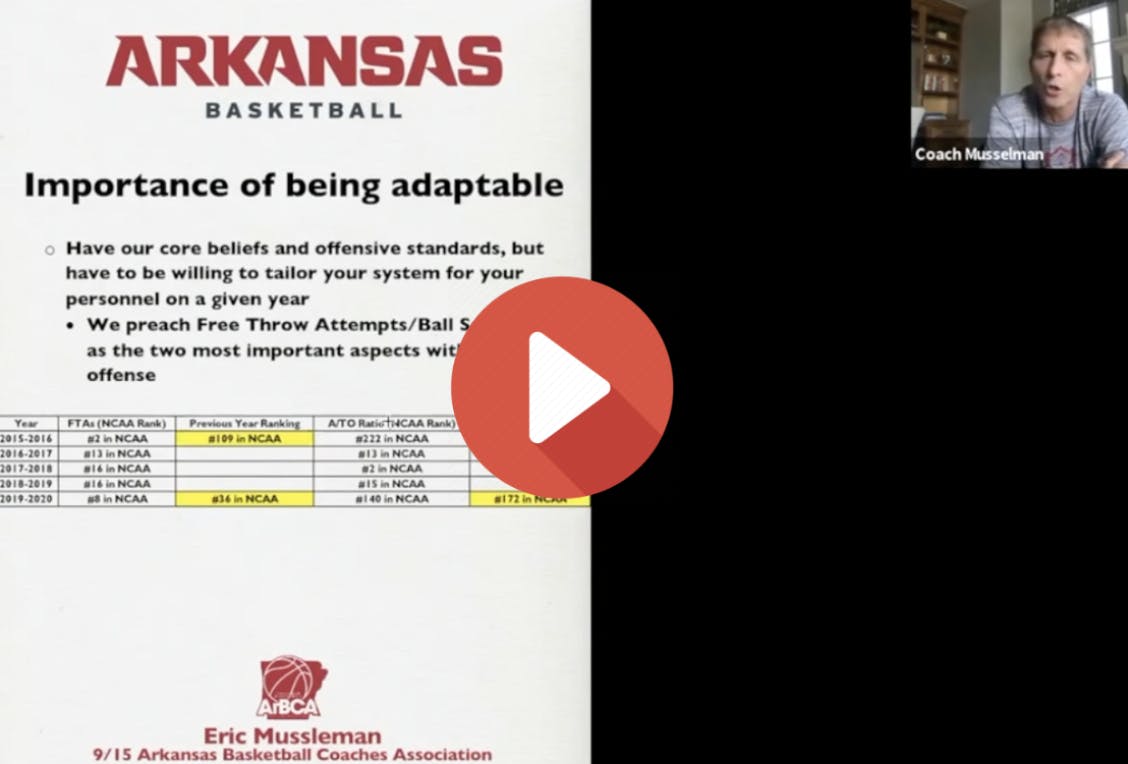
“Are you willing to tailor your system to what your personnel is?”
Going off of the last point, Coach Musselman stresses once again how important it is for coaches to be adaptable, because of the fluctuating nature of rosters at every level.
That being said, a coach should always keep a few core pillars/metrics in mind when crafting their offensive philosophy, as guiding points to assess how they’re performing, and whether the philosophy itself needs any adjusting.
Coach Musselman’s two key metrics are Free Throw Attempts and Ball Security.
Free Throw Attempts are an important metric for Coach Musselman because they portray a culture of aggression and hard-nosed play. If your team is constantly getting to the free throw line, then they’re a physical offensive team that is typically controlling the battle in the paint. Not to mention that free throw attempts are some of the simplest shots your team will receive in any given game.
And ball security is important for obvious reasons. While this isn’t itself a specific metric, Coach Musselman analyzes his own team’s ball security by their assist-to-turnover ratio. Coach Musselman instills this aversion to turnovers in his team by forcing every single person in the facility to do 10 pushups whenever a player commits a turnover during practice. This includes players, coaches, and any team staff members, such as trainers or strength coaches.
Coming up with creative, engaging punishments like this for turnovers is a great way to make that a core philosophy for your offense.
Play Calling
Coach Musselman stresses that he has an offensive play called for just about every scenario in games. Even during jump balls, he will call a play that factors in his team’s studying of an opponent’s jump balls. Once he figures out what the other team typically does if they lose a jump ball, he will devise a specific play to attack that.
Some of the other packages that Coach Musselman finds important are After Timeout play packages, After Free Throw play packages (for both made and missed free throws), Inbound play packages, and something for the first play of the game.
For each of these, Coach Musselman tries to have at least 5 different plays he could call, and is always adding new ones so that his opponents never know exactly what his team might run.
Maintaining this sense of unpredictability is extremely important for Coach Musselman because he doesn’t want his players to feel like they’re going through the motions in practice. If they always have to learn something new, then they have no choice but to be engaged and work their minds.
These are some of the techniques that Coach Musselman imparts, which you can use to help create your own offensive philosophy on the basketball court.

